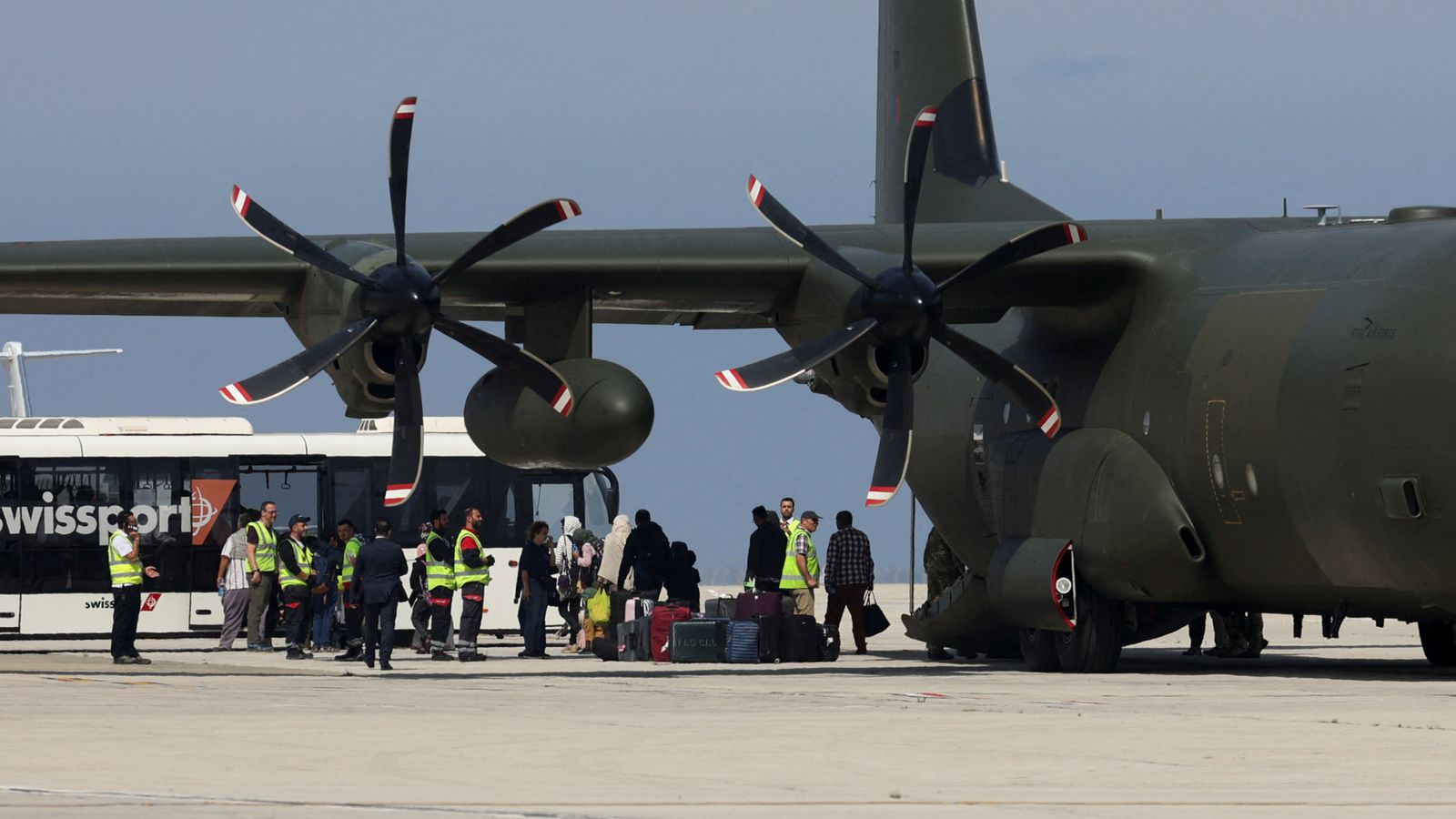Many people are arriving in Cyprus utterly traumatised and too upset to talk about what they’ve been through to get here.
We watched a hundred or so, slowly walk down the ramp off the back of an RAF Hercules aircraft into the Mediterranean sun on this holiday island. What a culture shock that must be.
They’re met by British government staff from the Foreign Office’s rapid reaction team – many of them are pulling 20-hour shifts as aircraft land at all hours of the day.
Medics and aid workers are on standby for anyone who needs help. The Cypriot authorities have experience of this – the exodus from Lebanon in 2006 – and they’re working closely with the British.
The process is quick once they land. They’re taken through immigration and then fast-tracked to a departures lounge away from most passengers, ready for a chartered flight back to the UK.
Some are giddy with the elation of making it to safety. Most are exhausted, silent and close to tears.
We met Dr Abdraman, his four sons and his wife, just as they were about to board their flight home.
Suella Braverman rules out introducing safe routes for Sudan asylum seekers after fighting
Latest evacuation flights carrying Britons from Sudan expected to land in Cyprus – as UK troops prepare to run Khartoum airfield
Agonising choice of NHS doctor fleeing Sudan has left her riddled with worry and guilt
His wife had to leave her parents behind. She buried her head in her scarf and sobbed as her children told us what they’d experienced.
“It was kind of tiring because we had to go upstairs and downstairs when we heard bullets and bombs because downstairs is more safe because they normally hit upwards, and it might hit us.”
If there is space, the RAF flights are bringing out other nationalities too.
We met an Australian, Eltayeb Eltayeb, who’d made it out overnight.
He said the situation in Khartoum was “horrendous” and “horrific”.
“In the middle of the city there were dead bodies everywhere, it was starting to smell like a lot of carcasses.
“[There were] a lot of buildings knocked down, a lot of homes shattered, a lot of people displaced from their homes, and a lot of people dead,” he said.
“It’s saddening because it’s right on your front doorstep, you can hear the gunshots outside, the bullets, the tanks firing, the missiles falling down hitting their targets.
Please use Chrome browser for a more accessible video player
“Your house vibrating, the windows shaking, it’s a pretty daunting and traumatic experience.”
Mr Eltayeb was staying with his family around 20 minutes from the centre of Khartoum. His house was opposite what he believed was one of the headquarters for the Rapid Support Forces – one of the two groups involved in the fighting.
“You look into the road and you see someone holding an AK looking at you and you just walk right back home.
“There’s a famine going on right now. There’s shortages of food, water, supplies. Nothing’s open, no-one is bringing supplies in, people are running out. Sooner or later they’re going to start jumping on the doors and extorting houses.”
The British military says they will be able to continue operating rescue flights, even if the fighting resumes.
They might have to. The 72-hour ceasefire is quickly running out and hundreds more Britons are still trapped in Sudan.







